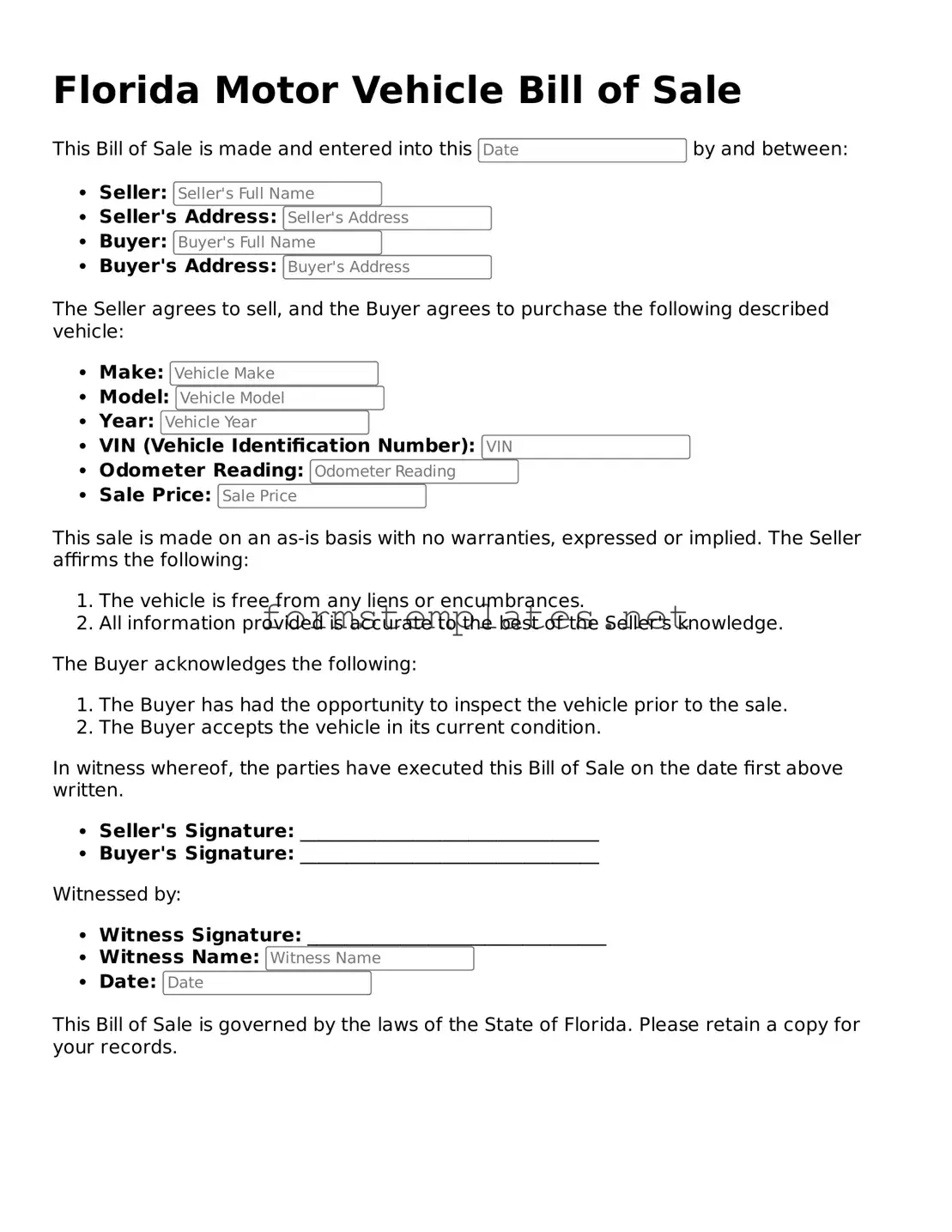Attorney-Approved Florida Motor Vehicle Bill of Sale Template
The Florida Motor Vehicle Bill of Sale is a legal document that records the transfer of ownership for a motor vehicle in the state of Florida. This form serves as proof of the transaction between the seller and the buyer, detailing essential information about the vehicle and the parties involved. Understanding its significance can help ensure a smooth and lawful transfer process.
Open Editor Now

Attorney-Approved Florida Motor Vehicle Bill of Sale Template
Open Editor Now

Open Editor Now
or
⇓ PDF Form
Your form still needs attention
Finalize Motor Vehicle Bill of Sale online — simple edits, saving, and download.